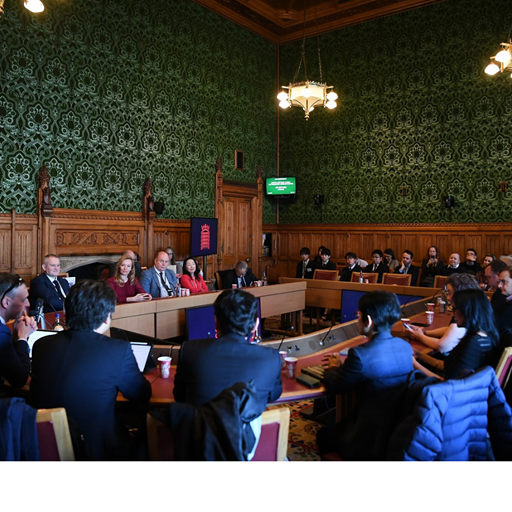International team reports on impact of COVID-19 on trust and compliance
-
Date
Wed 8 Mar 23

An international team including a University of Essex academic, has uncovered how COVID-19 has impacted on trust in public institutions and the new norms of behaviour post-pandemic.
The team presented its current findings on public trust during the COVID-19 pandemic at the Houses of Parliament.
The project which is analysing attitudes in the UK and Japan is led by Brunel University London and this latest parliamentary event was sponsored by David Simmonds MP and Lord St John.
Principal Investigator, Dr Steve Pickering, from the University of Amsterdam, said: “As new revelations around the UK Government’s approach to the pandemic in the news remind us, trust in politicians is vitally important when it comes to COVID-19. People need to know that they can trust politicians, institutions, and healthcare providers such as the NHS.”
Professor Han Dorussen from the Department of Government at the University of Essex is co-investigator on the international team. He said: “The project is unique as it compares COVID-19 responses in England and Japan and does so for a prolonged time covering both pandemic and post-pandemic periods.
“We were interested that there were similarities and dissimilarities between the countries. The medical systems in both countries continued to be perceived as trustworthy, while the governments lost trust. How the populations continue to behave once the risk is reduced, differs quite widely – in the UK, work practice and virtual meetings continue to be the focus, where in Japan people persist in mask-wearing and social distancing.”
The project was co-funded by the Economic and Social Research Council and the Japan Society for Promotion of Science. With monthly data collected in the UK and Japan over eight waves, there are three key takeaways explaining how trust affects people’s COVID-19 Policy compliance:
- The declining perception of threat caused by COVID-19 is observed in both countries. In both Japan and England, people have adapted to a post-pandemic "new normal". But this new normal is different in the two countries. While mask-wearing, social distancing and eating takeaways are still the norm in Japan, mask wearing, or social distancing are not practised in England anymore. Instead, the English new norm is based more on working from home and virtual meetings.
- In England, people’s COVID-19 protection behaviour is triggered by their fear of COVID-19, as a life-threatening disease. Once their perception of COVID-19 as a threat has reduced, people are less willing to engage in these practices. Nevertheless, this is not the case in Japan.
- In both countries, national medical systems (i.e. the NHS in the UK) and Courts receive most trust – COVID-19 has not eroded trust in those institutions. In comparison, governments in both countries receive lowest trust.
The project was led by Dr Steve Pickering (University of Amsterdam), the UK project team consists of Professor Dorothy Yen (Brunel University London), Professor Thomas Scotto (University of Glasgow), Professor Han Dorussen (University of Essex), Professor Jason Reifler (University of Exeter) and Dr Bryan McIntosh (Brunel University London).
The Japan team is led by Professor Yosuke Sunahara, with co-investigators Professor Naofumi Fujimura (Kobe University), Professor Naoko Matsumura (Kobe University), Professor Atsushi Tago (Waseda University), Professor Masahiro Zenkyo (Kwansei Gakuin University) and Professor Shun Ikeda (Tsuda University).
.jpg?mh=500&mw=500&hash=6568B6C9CCF5290A596BEF6678B6AD0E)



